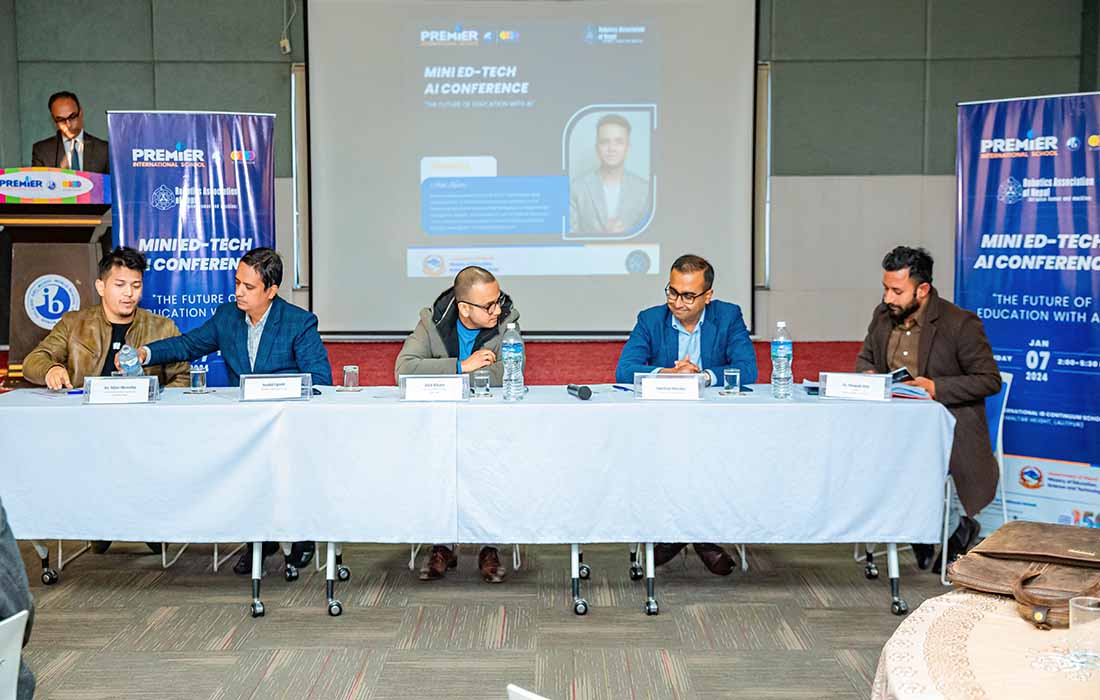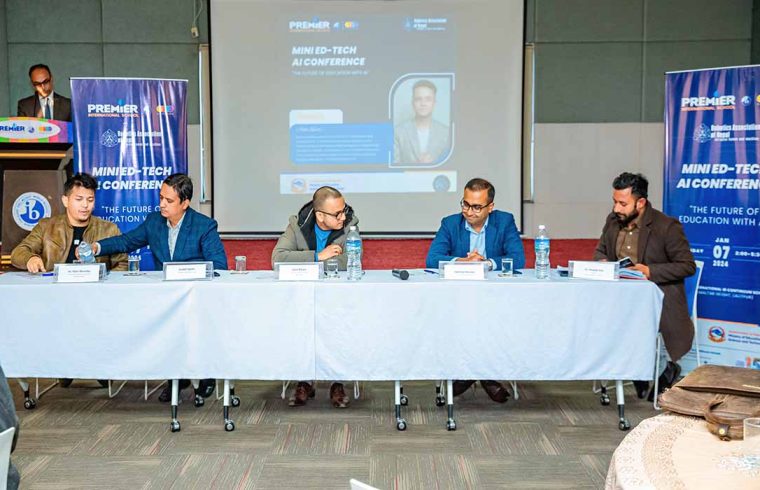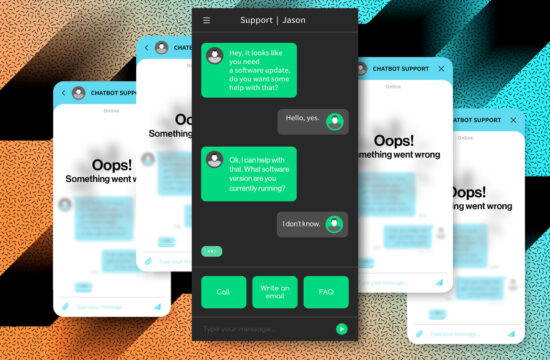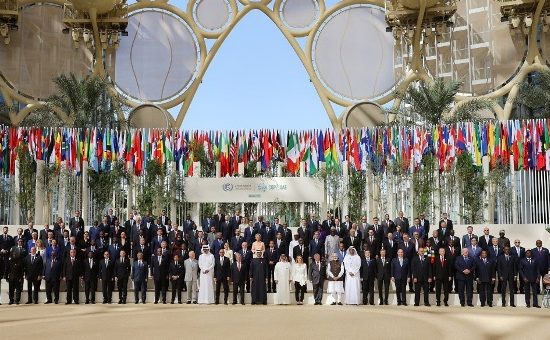
Lalitpur- The pre-event of YANTRA’s Mini EdTech AI Conference 2024, with the theme “Future of Education with AI,” concluded in Lalitpur, Nepal. In this pre-event, more than 100 educators, technologists, and AI practitioners gathered to highlight AI policy in the education system and its development in Nepal.
This pre-event was jointly organized by Premier International IB Continuum School, Robotics Association of Nepal (RAN), and Ministry of Education, Science and Technology (MoEST), for the “Robotics and AI Conference—AI for Prosperous Nepal,” which is part of the YANTRA—Science, Technology, and Entrepreneurship festival on February 16, 2024.
Mr. Indu Bikram Joshi, Joint Secretary, MoEST, and the Keynote Speaker of the event shared the government’s strong commitment to advancing AI in education, leveraging his extensive policy-drafting experience. “This conference is a foundational step for future collaborations in AI and education, positioning Nepal positively on the global AI landscape,” he said.
Dr. Rabindra Pd. Dhakal, Secretary of NAST, has pledged to promote the transformative path of AI in education by training scientific teachers at the school and university levels.
Mr. Jerry Tan, CEO, Lattel Robotics, highlighted common AI applications such as autonomous vehicles, natural language processing, and computer vision, emphasizing their real-world impact, and introduced a new approach to AI education, focusing on practical applications in four areas: computer vision, autonomous navigation, object manipulation, and speech interaction.
Mr. Punit Jajodia, co-founder at Programiz, emphasized the significance of integrating AI mentors into education and underscored the importance of continuous learning by sharing a personal experience of job displacement due to AI advancements in transcription.
Mr. Kshitiz Rimal, Founder, Next AI, shared that 2023 was the year for generative AI and gave an example of the Gemini model developed by Google, which can be used for text, image, and video generation with high reasoning capacity.
Mr. Alok Khatri, Head of Digital Innovation and Change, fostered the need for AI in business school, as business students cannot be treated only in this race of AI.
Er. Sijan Shrestha, Senior ML Engineer at Fusemachines Nepal, spoke about Fuse Classroom, which is a platform where the general public can learn about AI.
Dr. Nastaran Zadeh, President, Mechatronics and Robotics Society of the Philippines, highlighted the need to focus on training the trainer to prepare for the wave of AI.
Mr. Pravina Thapa, Academic Director, Premier International IB Continuum School, emphasized how leveraging presents the government and other ecosystem players with a unique opportunity to ensure quality education is accessible to all regardless of geographic location.
Er. Bikash, President, Robotics Association of Nepal, highlighted RAN’s mission of creating a robotics industry in Nepal by 2030 and how events such as the Mini Edtech AI Conference will be counted as milestones in the mission as these support the growing ecosystem around AI for education.
Er. Santosh Sharma, Under Secretary (Technical) at MoEST, concluded the conference, committing that MoEST is ready to work together with the private sector to develop relevant AI frameworks and to aid policy-making.








